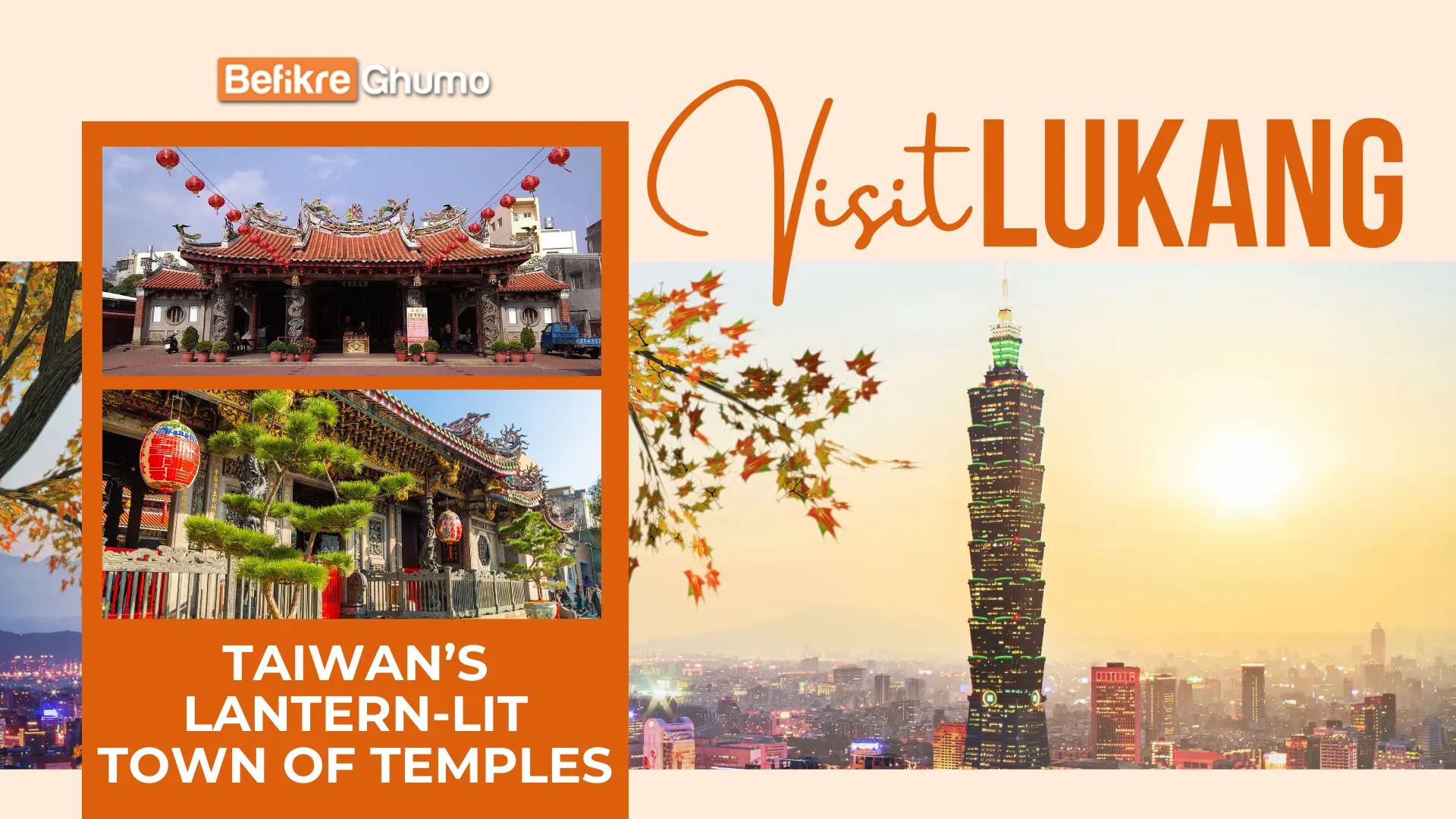
Taiwan is a land of vibrant cities, lush landscapes, and deep-rooted traditions. Among its many hidden gems, Lukang stands out as a place where history, culture, and spirituality converge. Known for its well-preserved heritage, charming alleyways, and mesmerizing lantern-lit streets, Lukang is a must-visit for Indian travelers looking to experience Taiwan’s traditional side. Whether you’re a history enthusiast, a temple-hopper, or a food lover, Lukang promises an unforgettable journey reminiscent of India’s own historic towns like Varanasi or Jaipur.
Lukang, located in Changhua County, was once one of Taiwan’s busiest trading ports during the Qing Dynasty. It served as a hub for commerce, attracting merchants from China and beyond. Over time, the port silted up, and economic activity shifted elsewhere, leaving Lukang frozen in time. Today, its old-world charm remains intact, making it a perfect destination for those wanting to step back into Taiwan’s past—much like walking through the ancient bazaars of Old Delhi or Kolkata’s heritage neighborhoods.
Lukang is home to some of Taiwan’s most revered temples, each with a unique story to tell. These sacred spaces are not only places of worship but also architectural marvels reflecting centuries of cultural influences, much like India’s grand temples in Tamil Nadu or Odisha.
Dating back to the Qing Dynasty, Longshan Temple is often regarded as Taiwan’s “Forbidden City of Temples.” This temple, dedicated to Guanyin, the Goddess of Mercy, features intricately carved wooden beams, majestic dragon pillars, and a tranquil courtyard that offers a peaceful retreat from the bustling town—similar to the serenity one experiences in the Meenakshi Temple of Madurai.
Dedicated to Mazu, the Goddess of the Sea, Tianhou Temple is one of the oldest Mazu temples in Taiwan. Fishermen and sailors have long visited this temple to seek blessings for safe voyages, much like how Indian fishermen in coastal towns like Kanyakumari and Puri seek divine protection. The temple is particularly lively during the Mazu Pilgrimage Festival when devotees gather to honor the sea goddess with colorful processions and performances.
Originally built as a Confucian school, Wenkai Academy is a fascinating historical site where visitors can learn about traditional education in Taiwan. The tranquil setting and ancient wooden structures make it a great spot to appreciate Lukang’s scholarly heritage—offering a glimpse into Taiwan’s emphasis on education, similar to India’s historic Nalanda University ruins.
One of the most enchanting aspects of Lukang is its narrow alleyways and historic streets, where visitors can wander and soak in the town’s atmosphere—much like Chandni Chowk in Delhi or the old streets of Jodhpur.
This zigzagging alley was designed to confuse potential intruders during ancient times. Walking through Nine-Turns Lane offers a glimpse of well-preserved traditional houses, intricate door carvings, and a sense of mystery that makes it a must-visit for history lovers.
A stroll along Lukang Old Street is like stepping into a living museum. The street is lined with red-brick buildings, traditional courtyards, and artisan shops selling everything from handwoven fans to calligraphy brushes. It’s a perfect place to shop for unique souvenirs and experience Taiwan’s craft traditions, much like India’s Dilli Haat or Jaipur’s local bazaars.
No visit to Lukang is complete without indulging in its delicious street food and local delicacies. Indian travelers will find some flavors reminiscent of their own cuisine, making it an exciting culinary adventure.
Lukang Oyster Omelette: A crispy, savory omelet packed with fresh oysters and served with a tangy sauce, somewhat similar to India’s prawn omelets found in Goa.
Phoenix Eye Cakes: A sweet pastry with a flaky crust and a rich mung bean filling, perfect for an afternoon snack—resembling India’s own moong dal barfi.
Lukang Rice Dumplings (Ba-Wan): These translucent, chewy dumplings filled with pork and bamboo shoots are a local favorite, much like momos found in India’s northeastern states.
Traditional Herbal Teas: Cool down with a refreshing cup of herbal tea brewed from centuries-old recipes, similar to India’s ayurvedic kadhas.
As the sun sets, Lukang transforms into a magical town illuminated by traditional lanterns. Walking through its temple courtyards and alleys under the soft glow of lanterns is an experience like no other. If you visit during the annual Lukang Lantern Festival, you’ll witness a spectacular display of lantern artistry, music performances, and cultural celebrations that bring the town to life—much like the grandeur of India’s Diwali celebrations.
Lukang is easily accessible from Taiwan’s major cities:
From Taipei: Take a high-speed train to Changhua Station, then hop on a local bus or taxi to Lukang.
From Taichung: A direct bus ride from Taichung Bus Station takes approximately 1 hour.
From Kaohsiung: Take the high-speed rail to Changhua and transfer to a local bus.
Lukang is a destination that seamlessly blends history, culture, and spirituality, offering Indian travelers a glimpse into Taiwan’s traditional charm. Whether you’re admiring ancient temples, savoring local delicacies, or getting lost in its labyrinthine alleys, every moment in Lukang feels like a journey through time—reminiscent of India’s own heritage towns. If you’re planning a trip to Taiwan, make sure Lukang is on your itinerary—you’ll leave with unforgettable memories and a deep appreciation for Taiwan’s rich heritage, much like discovering an undiscovered Indian gem abroad.

